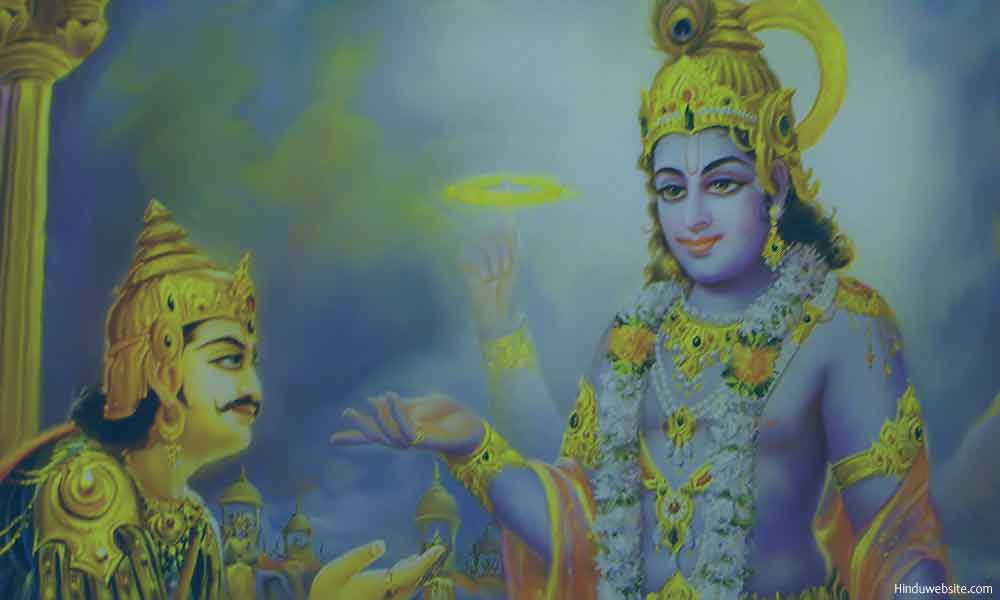
A Wise Man's Sorrow

Notes: I have translated the Bhagavadgita twice. The first one was a loose translation. The second one was a word to word translation with a detailed commentary. The commentary is however different from what you will find here. In this section I will share with you my thoughts about the knowledge, philosophy and wisdom of the Bhagavadgita as I understand it from my perspective. Jayaram V
Film and television producers in India know that Indians generally prefer tragedies that are mixed with other emotions and a lot of human interest themes. Somehow, people like dramas that are centered around suffering and show a medley of emotions. When they do not watch tragedies, they indulge in complete fantasy and romanticize life. This is reflective of the emotional state of many people.
People respond to suffering differently. You do not have to greatly educated or wealthy to know how to deal with suffering. Probably, the poor people are better equipped to cope with it, since they have to deal with it more. Very early in our lives we learn to deal with suffering, and much of what we learn during that phase remains with us for the rest of our lives. Therefore, in the face of suffering some wilt quickly while some show great fortitude, tolerance, and endurance.
A wise person understand his sorrow and deals with it with great poise. His sorrow is different in its intent and purpose. It helps him grow mentally and spiritually. They suffer not because they are vulnerable to suffering, but because they do not resist it and let it rise and fall by its own force. In the process, they stand back, observe and learn. Our gods also often suffer from sorrow, not because they have weak minds. They do it as part of their duty to ensure the order and regularity of the worlds.
Arjuna was a great warrior. He was not prone to the kind of emotions to which weak people are prone. By the time he participated in the Mahabharata war, he was already toughened by many unhappy experiences. What greater suffering can there be than losing your kingdom and your status as a prince, and seeing your own near and dear suffering ignominy and insults in the hands of your enemies. As a human, Arjuna went through a lot of pain and suffering. As a warrior, he saw many battles and the destruction they caused. Therefore, it is difficult to believe that the Mahabharata war rattled him or frightened him.
The Mahabharata war was unlike any he witnessed before. Almost all the Kshatriyas of that time from India participated in it and irrespective of which side they fought, their destruction was almost certain. The was certain to destroy life and change the face of the world forever. Hence, although Arjuna was a tough warrior and it was uncommon for a warrior like him to lose his nerve in the battlefield, he suffered from mental and emotional trauma and wanted to give up the will to fight.
However, his sorrow opened the doors of wisdom for him. His sorrow was perhaps destined because what followed was a long discourse from Krishna on the means to liberation, which serves the humanity even today. The discourse helped him to free himself from his worldly concerns and develop inner strength and stability. It helped him realize the significance of duty, and his own eternal nature. A disturbed state of mind is indicative of worldliness. It is the first stage in the spiritual evolution of a human being. From emotional instability to mental stability, this is the general direction of yoga practice in Hinduism. When you reach the end, you become stable minded (sthithaprajna). The Bhagavadgita promises to lead you in that direction.
Suggestions for Further Reading
- The Wisdom of the Bhagavadgita, Main Page
- The Wisdom of the Upanishads, Main Page
- The Bhagavad-Gita Essays and Translations
- An Introduction To The Bhagavad-Gita And Its Three Secrets
- Why to Study the Bhagavadgita Parts 1 to 4
- The Abbreviated Bhagavadgita
- The Problem of Maya Or Illusion and How To Deal With It
- The Problem of Maya Or Illusion and How To Deal With It
- The Bhagavadgita, Philosophy and Concepts
- The Many Gods and Goddesses of Hinduism
- Divine Qualities Of A True Worshipper Of God
- The Bhagavadgita on Karma, the Law of Actions
- Maya, The Grand Illusion Or The Delusion Of The Mind
- Aspects, Emanations, Incarnations and Forms of God Vishnu
- Dvaita or Advaita What is the Truth?
- Symbolism in the Bhagavadgita
- The Truth About Karma
- Meaning and Definition of Bhagavan
- Brahman the Supreme Universal Lord of All
- What is Bhakti or Devotion?
- Bhakti Marg, the Path of Devotion
- History and information about Mathura and Vrindavan Temples
- True Devotion and Qualities of a True Devotee
- Essays On Sorrow And Its Spiritual Significance
- The Yoga of Knowledge or the Samkhya Yoga, Verses and Commentary by Jayaram V
- Essays On Dharma
- Esoteric Mystic Hinduism
- Introduction to Hinduism
- Hindu Way of Life
- Essays On Karma
- Hindu Rites and Rituals
- The Origin of The Sanskrit Language
- Symbolism in Hinduism
- Essays on The Upanishads
- Concepts of Hinduism
- Essays on Atman
- Hindu Festivals
- Spiritual Practice
- Right Living
- Yoga of Sorrow
- Happiness
- Mental Health
- Concepts of Buddhism
- General Essays